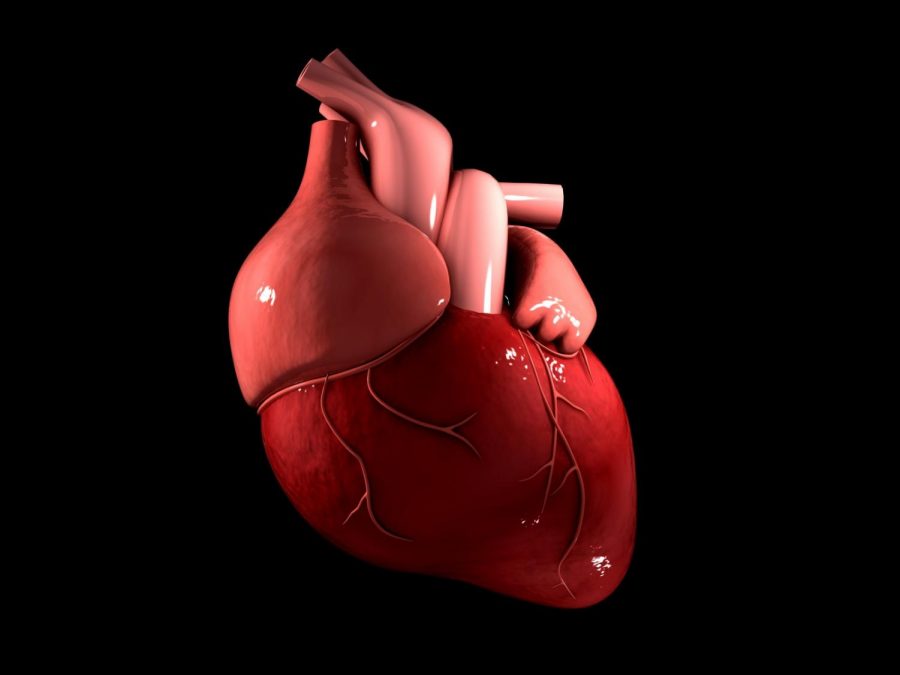Heartbroken
April 14, 2021
The heart is a complex organ. It is the second most important part of the body next to the brain. The heart itself is composed of four chambers. The right atrium, the right ventricle, the left atrium, and the left ventricle. The right atrium receives blood from the veins and pumps it to the right ventricle. The right ventricle receives blood from the right atrium and pumps it to the lungs, where it is loaded with oxygen. The left atrium receives oxygenated blood from the lungs and pumps it to the left ventricle. The left ventricle pumps oxygen-rich blood to the rest of the body. When the blood gets low on oxygen, it makes its way through the veins and to the right atrium where the process begins all over again. Each chamber has a very important job to do. So, if one chamber were missing, it would cause a serious problem. The heart would not function properly. The heart would be “broken”. This is what happened to me. I was also born with pulmonary atresia which means that the valve that controls blood flow from the heart to the lungs is missing in my heart. I was born at Baptist hospital. I was born via C-section. Only three hours after I was born, I was rushed in a life flight ambulance to Niklaus Children’s Hospital, formerly known as Miami Children’s Hospital. My father went with me in the ambulance, while my mother stayed behind at Baptist and recovered. I went through a catheter procedure within the first 24 hours of being born, and I went through open heart surgery at nine days old. I spent lots of time in the hospital as a baby. And I would spend more time in the hospital as I grew older. I have a heart condition. Because of this, my life growing up was different from that of other children. I missed school regularly for doctors’ appointments and I had to do plenty of tests. One of which was the Holter monitor test. Once or twice a year when I was little, I would have to wear a Holter monitor. A Holter monitor is a portable echocardiogram. An echocardiogram, or echo for short, is a test that uses sound waves to produce detailed images of the heart’s structure. I would have to wear the monitor for one week and I couldn’t take it off at all. I had to take sponge baths and wear a very itchy undershirt to keep it in place during the day. Luckily, it wasn’t that often. I have been told that when I was little, I would complin about my heart feeling “funny”. I was sentenced to the Holter monitor for a month. This happened twice in my life. Twice in my life I had to wear the Holter monitor for 30 days in a row. I would also have to routinely do exercise stress tests. This type of test involves raising your heart rate with exercise or medicine while performing heart tests and imaging to check how your heart responds. I did mine with exercise on a treadmill. The way I did it was that I had to run until I couldn’t run anymore and that was how they measured my heart’s strength. Now don’t get me wrong, I use the word “they” to refer to the doctors who saved my life. But these are also the doctors who changed my life. Change isn’t always good, and it isn’t always bad. I am eternally grateful for being given the chance to live my life. But my life is very different than that of my friends. My friends don’t have to have a 504 plan in place at school. My friends don’t have to have their medical alert card in front of their driver’s license in their wallet. My friends don’t have to stay to take their midterms or final exams because they have little to no absences. My friends don’t have cardiologist appointments every six months. My friends don’t have to do any of these things. But I do. I need a medical form that allows me to routinely get water at school. I need to keep a card in my wallet explaining my heart condition. I need to go to doctor’s appointments on school days. I need to go to cardiologist appointments every six months. I have accepted all of this. I have learned to deal with my heart condition and accepted all of its accompanying factors. Living with this heart condition is somewhat of a challenge for me, but as I grow and improve, it gets better. I have learned to live with it and deal with it in my own way. And I am very grateful for my heart.



